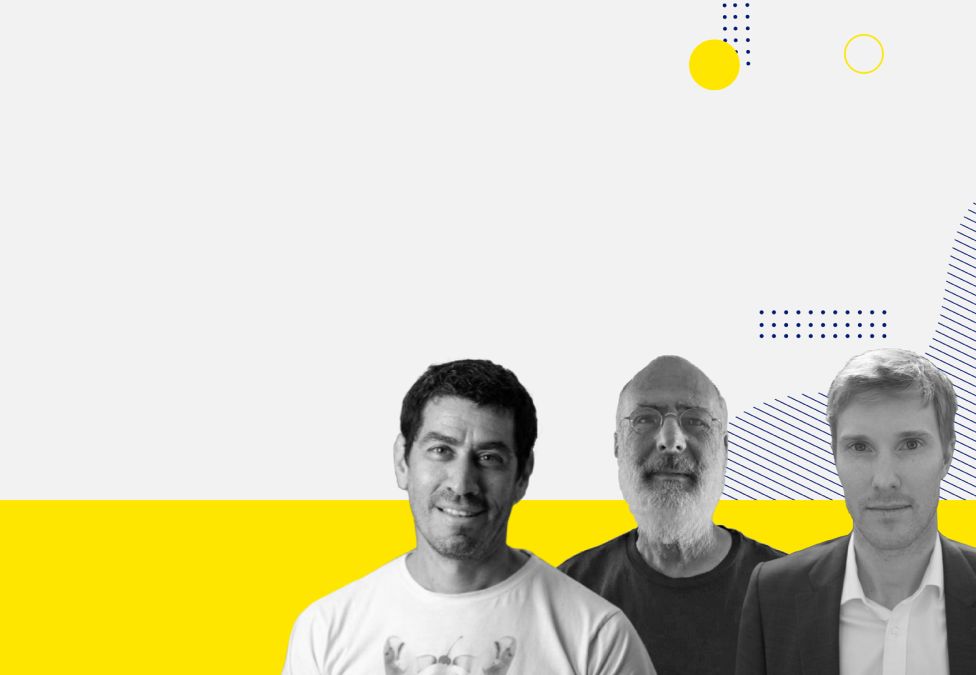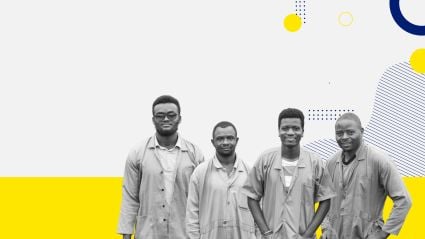
Pictured (left to right): Elad Orian, Noam Dotan, and Ryan Brand.
Would you please tell us about your team and why you are passionate about AgriTech?
Comet-ME has been providing basic renewable energy and renewable-energy-based water pumping and filtration services to off-grid farming and herding communities since 2009. Working locally in the occupied Palestinian territories over the past 12 years, Comet-ME’s team espouses a dynamic needs-based approach to appropriate technological development. We are excited to take the practices developed over the course of the last decade, to team up with local partners in Ghana to pilot our solar-powered pump, and to make an even larger impact for potentially millions of smallholder farmers.
What inspired you to participate in the Milken-Motsepe Prize in AgriTech? What do you hope to gain from this experience?
We have chosen to participate in the Milken-Motsepe Prize in AgriTech competition because the driving mission behind the competition recognizes the importance and difficulty of trying to provide technological innovation that caters to smallholder farmers in the Global South. We are proud to be a part of a community that not only seeks to harness technology for good, but which does so in a way that addresses real problems and develops viable and economically sound solutions that increase economic value for smallholder farmers. Now, as we embark on the piloting stage with our partners in Ghana, we are excited to do so as finalists for the Milken-Motsepe Prize in AgriTech, with all the support, networking opportunities, and sharing of best practices this entails.
Would you briefly describe your concept and how it will increase economic value to farmers in Africa?
The Solar Magnetic Piston Pump (SMPP) was born from the need for a high-quality reliable solar pump at a much lower price than existing high-end pumps on the market. We have taken the reliable, ancient piston pump concept and turned it into a double-action pump, driven directly with a solar-powered linear motor. With a high daily water capacity, the SMPP can irrigate two to four acres a day and enable smallholder farmers to increase the production yield dramatically. The simple, robust, and modular design of the pump allows for high reliability and simple, on-site service without the need for special tools.
All these things support the “last mile distribution” system that is so fundamental in the developing world. The pump's innovative core technology, granted a US patent, can be used to power a family of pumps with a broad range of applications.
What do you think sets you apart from other teams in the competition?
Comet-ME’s team of Palestinian and Israeli scientists, engineers, technicians, and community workers has been working for the past 12 years to provide basic infrastructure and services to marginalized herding and farming communities. We facilitate the social and economic empowerment of some of the poorest communities in the occupied Palestinian territories through the installation of renewable-energy and clean-water systems and, more importantly, through the reliable maintenance and management of these systems. Our project provides a modicum of normalcy within a highly stressful and coercive environment. Working shoulder to shoulder with the communities inspires us, and not a single day goes by that we do not ask ourselves how we can better deliver our services to them. Through our work in the West Bank, we have developed a set of best practices for appropriate technological development, which we translate into the research, development, and piloting of our solar-powered pump, which has much broader applications for the Global South.











